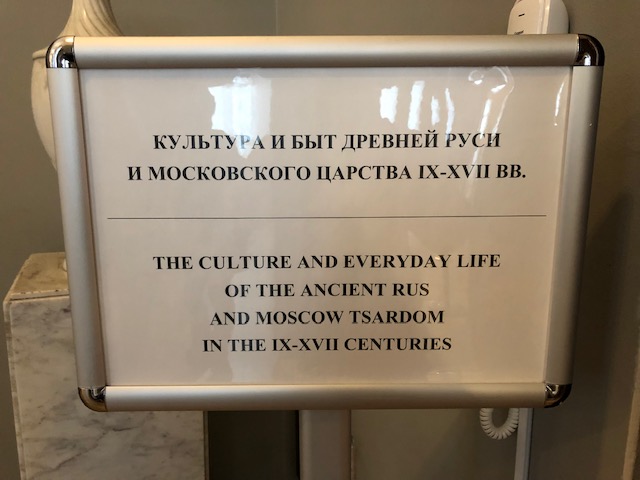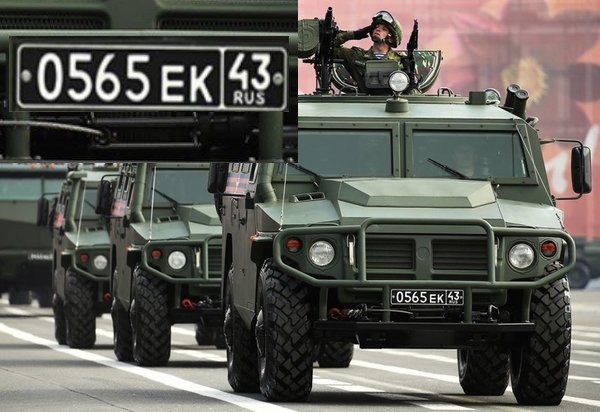
|
Russia's recovery from the Cold War and the collapse of the USSR
Russia's remarkable recovery from the collapse of the USSR
|
|
Thursday, January 31, 2019
|
www.bibleinthenews.com Audio & Print versions
|
This week Bible in the News is brought to you from Moscow which was the capital of the Soviet Union until in December 1991 when the red flag with the hammer and sickle was lowed for the last time from above the Kremlin, signalling the final collapse of the USSR, just a short distance from where I am now.
Back in the early 1990s Russia was on its knees. It had just assumed responsibility for the US$70 Billion US owed by the Soviet Union, and moved from economic crisis after economic crisis throughout the 1990s. Due to these crises its military spending plummeted from today’s equivalent (allowing for inflation) of around US$250 billion in the late 1980s down to less than a fifth of that after the collapse of the USSR, and over the next few years, due to the economic situation here in Russia, it dropped by a further two thirds to just a fraction of what it had been just 10 years before.
Bible prophecy requires a strong Russia, with a strong and active military. In chapter 38 of the prophecy of Ezekiel, Gog – who, in verse 1, we are told is the prince of Rosh or Russ (the ancient name for the people of Russia) – would be a ‘guard’ to a large group of nations listed in the chapter. The list includes Gomer, which is a large part of modern Europe as well as other nations from the Middle East as well as Africa.
Even at this time when the Russian Empire was in complete collapse, this was a view held firmly by many Bible students. At this time an article in the Bible Magazine said that “many mistakes have been made in the past by those who have sought to understand Bible prophecy in the light of current events” and that our understanding of Bible prophecy must be led “by taking heed “unto the light that shineth in a dark place” (1 Peter 1:19)”. The article reminded the readers of the events of 1917 when “some were ready to scoff at the idea of a Russian Superpower gaining control of Europe and the Middle East… Today, when the Communist Empire (as we have known if for over 30 years) is apparently being dismantled, we need to exercise caution”. The writer states that “there can be no mistake that this great confederacy, or alliance of nations [that invade Israel] is to be presided over by “Gog of the land of Magog, the prince of Rosh, Meshech and Tubal”, (R.V)” and goes onto say that “[the evidence] leaves us in no doubt that Rosh is the ancient name for Russia”.
And therefore, even though Russia was at that time in a position of great weakness politically, Bible believers could still say with confidence that the Russian power would rise again. Indeed, in the same issue of the magazine, the comment was made talking of the western enemies of the Soviet Union:
“Those who leap for joy at what they see, and widely advertise, as the collapse of Russia’s empire should wait to see the shape of the replacement. It may not be a cause for rejoicing!”. (Bible Magazine, Vol 4. Issue 2)
Since the events in that historic December of 1990, we have seen the dramatic revival of Russia, something which is necessary for Bible prophecy. The “replacement” to the Soviet Union is again at odds with the West, rapidly rebuilding its military force, and has shown its willingness to use it. Over the last few years we have seen Russia’s army in action in Ukraine, Georgia and in the Middle East. Economically Russia has boomed, and in 2017 it finally paid off the of the last debts in inherited from the Soviet Union.
The rise of Russia since over recent years is something that has been widely commented on in previous editions of the Bible in the News. The events of 1990 and 1991 may have now been proved to be a short term setback for Russian power, but it also forwarded other expectations of Bible students. It resulted in a united Europe, and a much more religious Russia. The war spoken about in Ezekiel 38 is a holy war, and it was therefore necessary for the mainly atheist communist regime to fall. The Russian Orthodox Church now enjoys being the privileged religion of the state here in Russia.
Since the fall of communism, we have also seen for the first time in 1000 years, meetings of the Catholic Pope and his Russian equivalent, the Russian Orthodox Patriarch Kirill which happened for the first time in 2016.
In January of each year Russians cut through the ice for the annual ritual marking the baptism of Christ. The temperature can range from -10°C to as low as -45°C, but it still does not deter devout members of the Russian Church. Last year once such member was one Vladimir Putin, who arrived for the ritual, crossed himself, and dived into the icy waters. The event was promoted heavily on television and fellow Russians were encouraged to do the same. The local mayor said “you are all orthodox people are you not?” “I ask all heads and their deputies to take part in this organised event”. An article by the economist likened it to the Soviet leaders ordering public workers to take part in the May Day parades during the Communist era.
And so, we see the Eastern Church being strengthened in Russia and also the first moves towards the uniting between it and the Western Church which is something that is necessary for the holy war of Ezekiel 38, when both Catholic and Orthodox nations fight together against Christ.
Russia is no longer the country in crisis it was back in the 1990s, and its position is now strengthening around the world, especially in the Middle East. The United States spent much of the cold war trying to push Russia out of this area, and over just the last 10 years Russia has become the dominate player again in many of its former allies, especially Syria.
So now in 2019, with a strong Russian power again in the east we can see the situation described by the prophet Ezekiel coming together, but even back in 1990, when Russia was weak and in crisis, by focusing their understanding on the bible itself, Bible believers could be confident that Russia would be strong again. This is because in Ezekiel, Gog is said to be the prince of Rosh, Meshech and Tubul, and this power of Rosh, Meshech and Tubal are the leaders of the confederacy of nations that invade Israel. Rosh relates to the name of ancient Russians, the people of the Rus. The national anthem of the USSR included a line that referred to Russia as “Velikaya Rus”, or in English, the great Rus. On the number plates of their cars today you see Rus written along with the Russian flag. In the famous Hermitage Museum in Saint Petersburg I came across a section of the museum titled “The culture and everyday life of the ancient Rus”. And so it is very clear that Rus is an ancient name for Russia. Tubal relates to the area surrounding the Tobol River, east of the Urals, which gives the name to the city of Tobolsk. And Meshech relates to the city of Moscow. With this power is a list of other nations including large parts of Europe. This made it clear to Bible believers that Russia must be in a position of strength and leadership in the world at the time of the end. By focusing an understanding of Bible prophecy on the bible itself rather than the immediate current events of the time it could be understood that the events of the 1990s were a mere setback to the growth of the Russian power.

Section of the Hermitage Museum in Saint Petersburg.

Russian military vehicle with close up image of the licence plate
And so we must ensure that when we see prophecies in the Bible, for example that there will be a time when Israel will be in peace and safety, we can be confident that this will come to pass, however impossible it may seem at the moment. We must ensure that we base our understanding of prophecy on the bible itself, rather than trying to make the bible fit the events of the day, knowing that God will bring forward his plan, whatever the will of man may be.
When we see the government of the UK raging and trying to ‘rule out’ a no-deal Brexit, or refusing to vote for the Theresa May’s withdrawal agreement, we can be confident that whatever their current plans may be, God’s plan will come to pass because the most high rules in the kingdoms of men. Join us again next week for another edition of Bible in the news.